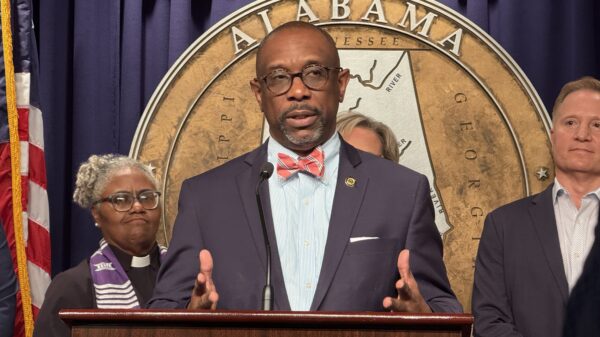By Dr. Henry C. Mabry
The pending state General Fund Budget is generating discussion concerning Gov. Robert Bentley’s demand to include an additional $100 million for Medicaid. Without this amount, the governor is threatening a veto and June special legislative session. The governor says Medicaid will not be adequately funded and that the new managed care program will be in jeopardy without the new money. The governor’s claims that the new Medicaid money is needed can be justified; however, it does not appear that the legislature has received all facts concerning the Medicaid’s funding request.
Much attention has been given the Medicaid Agency’s proposed move to managed care via regional care organizations (RCOs). Gov. Robert Bentley and his cabinet officers have touted the new management scheme as a way to save the state hundreds of millions of dollars along with the chance to receive over $700 million in additional federal money. During the communication process concerning Medicaid funding it appears, at least publicly, that integral information has not been discussed during the budget process.
When Governor Bentley said the federal government approved the Section 1115 Waiver for Medicaid Managed Care Transformation, the governor did not mention that the federal approval will require an additional $150 million in state hard spending. All the governor said was that Medicaid had to remain adequately funded to get the new federal money.
Maybe the governor did not understand that the waiver approved was not the same thing as the waiver requested. Maybe the governor was not informed as to the federal requirement that the state pony up $150 million to get the waiver implemented. Giving the governor the benefit of the doubt that he did not know the full ramifications of the approved waiver is beside the point. What the legislature needs to know as it finalizes the FY2017 state General Fund Budget is that it will have to provide $60 million in new spending next year just to draw down extra federal funds for the new managed care program to begin in October of 2016.
The governor’s statements and those from his administration that followed have implied that more than $700 million in extra federal funding is at stake without the state providing adequate resources to Medicaid. It has been said that $747 million is at stake without the governor getting his budget which calls for an additional $100 million in state dollars for Medicaid.
Unfortunately, the $747 million figure is as illusory as the 747 Jetliner in the 1970 movie “Airport.” The $747 million figure includes the governor’s initial Medicaid waiver application that was grounded by the federal government. The requested funding for the governor’s application was not approved. The governor can link his budget request of $100 million more with the big $747 million figure, but doing so is not realistic as argued below.
What is this $747 million in extra federal money at stake that the governor discusses? This is comprised of two things. First, there is the half loaf waiver the federal government approved providing over $300 million for the state’s $150 million investment. Second, is the full loaf waiver application the governor hopes he would get in the future that would provide over $400 million in free Medicaid money.
There are not two waivers. There is only one Medicaid Transformation Waiver, and this waiver was proposed by the state and disposed of by the federal government. This is much like an original bill introduced in the legislature where changes may occur during the legislative process and the final bill may look dramatically different than the original version.
The Alabama proposed $400 million free money waiver was rejected, or “not approved,” by the federal government. There is no reason to believe such waiver will be approved in the future given that the federal government substituted that $400 million waiver application with an approved, shucked-down $300 million waiver approval requiring Alabama to put skin in the game.
Alabama asked for a waiver with over $400 million in free money. Alabama asked for a federal waiver with much latitude. Alabama got a waiver with no free money and little wiggle room. Instead of getting a free loaf, Alabama got half a loaf for which it has to pay for many slices.
The first money for the new RCO program, in fact, will be from Alabama and not the federal government as required by the waiver approval instructions. If Alabama does not spend new money on the program, then the federal government will not provide funding and it will disallow the waiver program.
One sentence in the waiver federal instructions ended the Alabama free money fantasy. The federal instructions state: “The standard Medicaid funding process must be used during the demonstration.”
What does this mean? This means that to receive federal funding that the state will have to provide state matching funds up front to get the federal money.
Every federal Medicaid dollar spent in Alabama requires a state match. Even if Alabama expanded Medicaid next year under Obamacare, then Alabama would have to put up a state match.
If Alabama requested a new program to add 10,000 people to the Medicaid rolls for a special optional treatment, and the federal government approved such a new program with normal match, then Alabama would pay about 30 percent of the tab by state match. The Bentley Waiver is no different. The Bentley Waiver will require Alabama to spend an extra $150 million to get extra federal money for this new RCO managed care program. He did not want it this way, but this is what the federal government said would have to happen to get the federal money.
In the approved waiver documentation it is explicitly stated that the state must provide ordinary match. Further, the waiver explicitly says the state cannot supplant existing Medicaid funding to provide the state match. Specifically, the federal instructions say, “The state must not supplant funding obligations from other federal sources.”
This may be why there has been administration outcry about the need for an extra $100 million more for Medicaid next year. Anyone who reads the brand new federal Alabama waiver requirements will recognize that the gig is up without new state spending. Almost $60 million of the $100 million the administration is demanding under veto threat is needed for funding the new RCO program if there is to be an RCO program.
Alabama has to spend money up front, and then the federal government reimburses the spending. In the first year $187.5 million is federally authorized to be spent. Normal match for this amount is around $56 million. The bulk of the waiver program, if implemented, would alter future spending for aged, blind, and disabled programs, to save money in those program areas.
The pending state General Fund Budget has an extra $15 million a year for Medicaid. The state Medicaid Agency says this is not enough to continue programs and start the RCO program. Considering the $60 million part needed for the RCO program, the $100 million request is probably shy at least $20 million considering medical care inflation.
If the legislature chooses to adequately fund Medicaid, then an estimated $60 million is needed. If the legislature chooses to fund the RCO program, then another $60 million is needed. It is true that Medicaid will not be adequately funded and cannot start the RCO program without at least $100 million, but the legislature should not bank on getting $747 million in free money from the federal government for “adequately funding Medicaid.” The state will get just over $300 million in extra federal funds, but these extra dollars come with a $150 million state price tag with the first $60 million installment coming in the FY2017 General Fund Budget if the legislature is so inclined.
Dr. Henry C. Mabry served as State Finance Director from 1999-2003. He currently heads Mabry & Co., and can be reached at [email protected]




















































